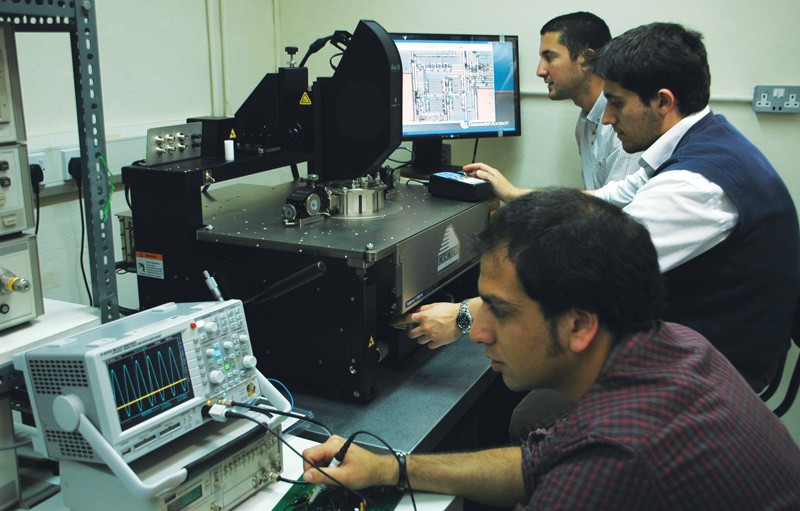MICRo-electro-mechanical systems (MEMS) are about the width of a human hair. They can tell a smartphone which way is ‘up’, enable inkjet printers to eject ink precisely, and are even found in high definition displays. These chips have sensors that detect a physical quantity such as temperature or direction, which is then converted into an electrical signal. The signal can be passed on to a customised computer chip designed for a specific use, called an application-specific integrated circuit (ASIC). A MEMS device operating through an ASIC is called a microsystem, commonly found on handheld devices. Students at the University of Malta are currently researching ways to crucially improve these devices.
Over the past years, research into MEMS has developed sensors for temperature, pressure, inertial forces, chemical properties, magnetic fields, radiation, and more. These tiny microsensors outperformed their larger counterparts at a lower price. Recently, they were adapted for gas and liquid flow control, optical switches, and mirrors found in video projectors.
Locally, the Department of Microelectronics and Nanoelectronics is collaborating with STMicroelectronics, which is funding postgraduate studies in both MEMS and ASIC design. They are investigating accelerometers that, for example, enable a smartphone or a gaming console to know how the device is being held. The Department is using the latest manufacturing techniques to test its research innovations.
Accelerometers have two main functions: sensing direction using an MEMS chip, followed by processing the information using an ASIC. Both chips are placed on a single package. The research focuses on reducing power consumption and cost, which will enable smartphones to perform better at a lower price.
“Training in this field will hopefully entice industry to develop research and design teams focused on this rapidly expanding field,” says Dr Ivan Grech, senior lecturer at the Faculty of ICT. The development of microsystems is an attractive and exciting area of study, which provides new and innovative ways to use smart devices for everyday applications.
Research in this area was carried out by Ansel Briffa, Jean Marie Darmanin and Kristian Grixti, as part of their Master of Science in Microelectronics and Nanoelectronics at the Faculty of Information and Communication Technology. They were supervised by Dr Ing. Edward Gatt, Dr Ivan Grech, Dr Ing. Owen Casha and Prof. Ing. Joseph Micallef.





Comments are closed for this article!